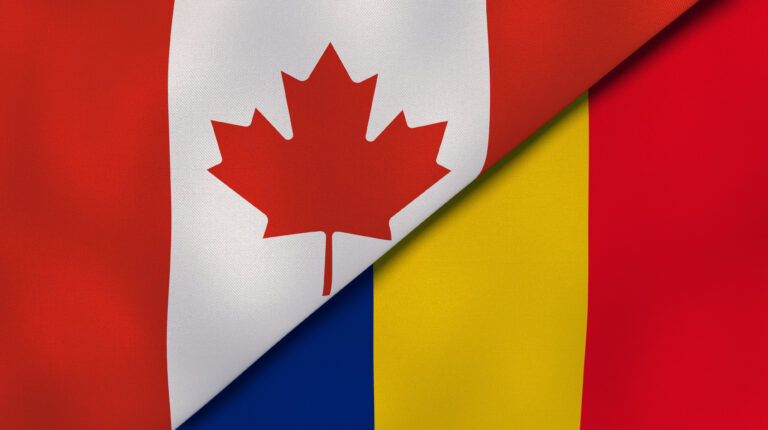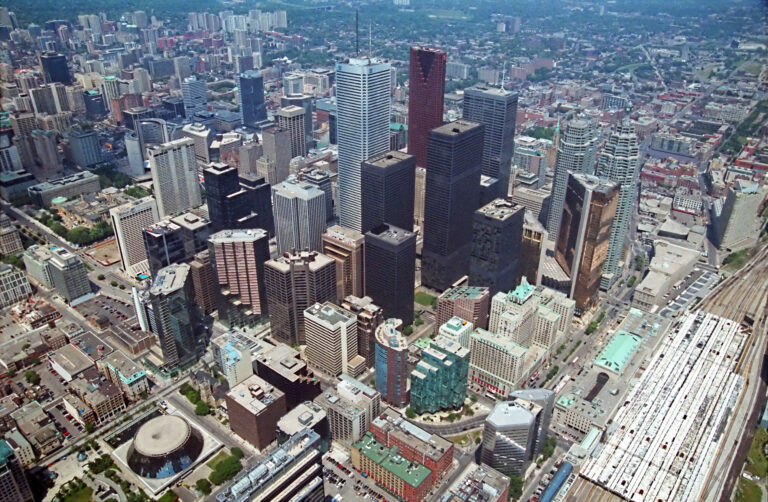Canada is opening an immigration processing centre in Romania, less than nine months after opening one in the Philippines.
The operations centre in the Canadian embassy in Manila was an attempt to build enough capacity to boost immigration levels to Canada beyond the current, record-breaking numbers.
Since its launch in March, the Global Operations Centre (GOC) in Manila has processed more than 150,000 temporary resident applications from countries as diverse as the Philippines, Nigeria and Bangladesh.
The new centre in Romania is located within the Canadian embassy in Bucharest and will be supported by 20 new employees, including both Canada-based and locally-hired staff and is intended to complement Immigration, Refugees and Citizenship Canada’s (IRCC) processing network and extend the work day over multiple time zones.
“Immigration is crucial to Canada’s economic growth and prosperity. Improving immigration processing capacity and client service is key to success in the global search for talent,” said Immigration Minister Marc Miller.
Read More Canada Immigration News
Rebound Of Canada’s Parents And Grandparents Program Continues
Applications Now Open For International Experience Canada 2024
Quebec To Employ 1,500 Asylum Seekers In Health Care Industry
I am glad that we are expanding our worldwide presence by opening a second global operations centre. This new centre will help support our goal of bringing people to Canada, whether to visit, study, work or stay permanently, and doing it faster.”
In a statement, the IRCC claims it migration trends are changing and the world is becoming increasingly complex. Canadian immigration officials say they are adding resources, embracing new technology and streamlining processing as part of the IRCC’s efforts to build the next generation of Canada’s immigration system.
Immigration accounts for almost all of Canada’s labour force growth and, by 2032, is projected to account for all of Canada’s population growth. Immigrants account for 36 per cent of physicians, 33 per cent of business owners with paid staff, and 41 per cent of engineers in Canada.
Watch Video
Under its 2023-2025 Immigration Levels Plan, Ottawa had set its immigration target for 2023 at 465,000 new permanent residents. The current level of immigration for this year means Canada could end the year actually welcoming almost 4.5 per cent more newcomers than it had planned, or roughly 485,000, if the trend set in the first 10 months of the year continues throughout the rest of 2023.
Under the 2024-2026 Immigration Levels Plan, Canada is also planning to welcome 500,000 new permanent residents in 2025 and then hold the line on immigration in 2026 with another 500,000 newcomers.
That’s a total of 1.485 million immigrants to Canada over those three years.
Last year, Canadian immigration officials processed roughly 5.2 million applications for permanent residence, temporary residence and citizenship, about double the number of applications processed in 2021.
Manila Operation Centre Was Part Of Canada’s Indo-Pacific Strategy
The GOC in Manila employs 37 employees in the Philippines, the country which was the fifth most important source of new permanent residents to Canada in 2022 with 22,070 new arrivals, up 22.5 per cent from the level of immigration from that country in 2021.
The opening of the operations centre in Manila was part of Canada’s Indo-Pacific Strategy.
“Canada’s Indo-Pacific Strategy is crucial in addressing the impact of the region on Canadians, including the Filipino community,” said Mississauga—Streetsville MP Rechie Valdez in making the announcement for immigration minister earlier this year.
“The opening of the new application processing centre in Manila is a strategic investment that will benefit Filipinos by providing more efficient processing of visas and supporting Canada’s planned increases to immigration levels. By expanding our presence overseas, we are committed to facilitating the immigration process for those who want to visit, study, work, or immigrate permanently to Canada.”



